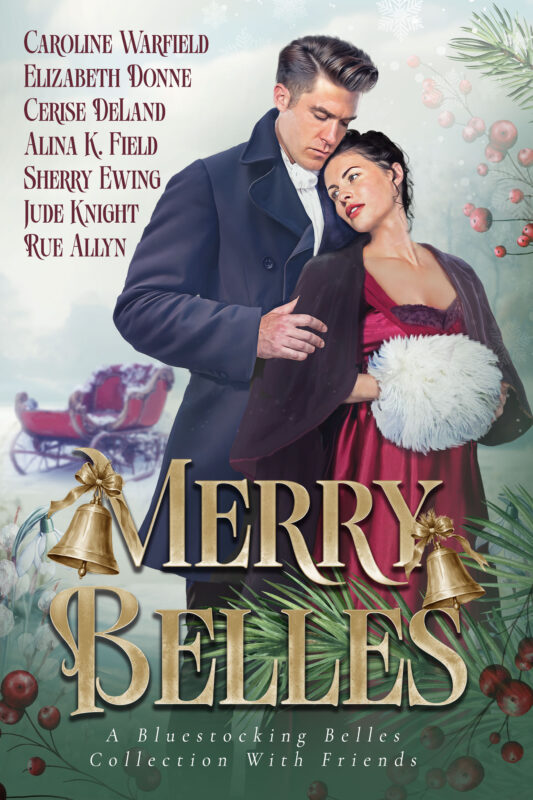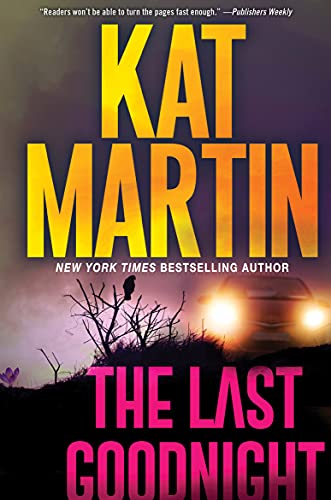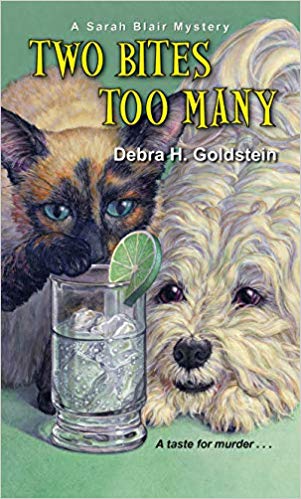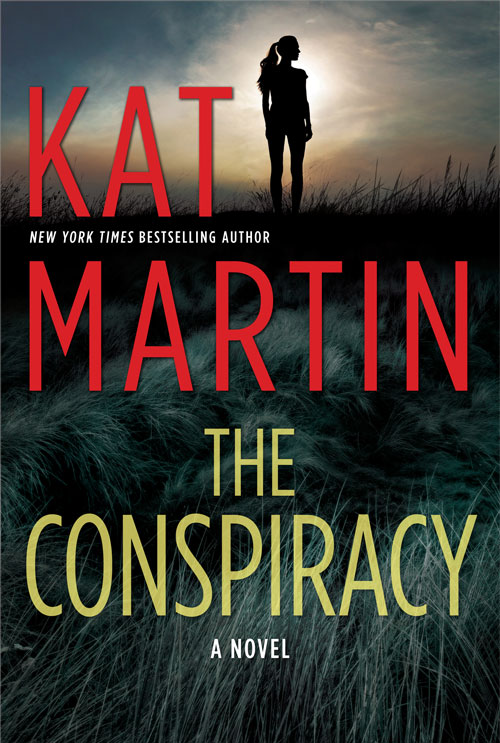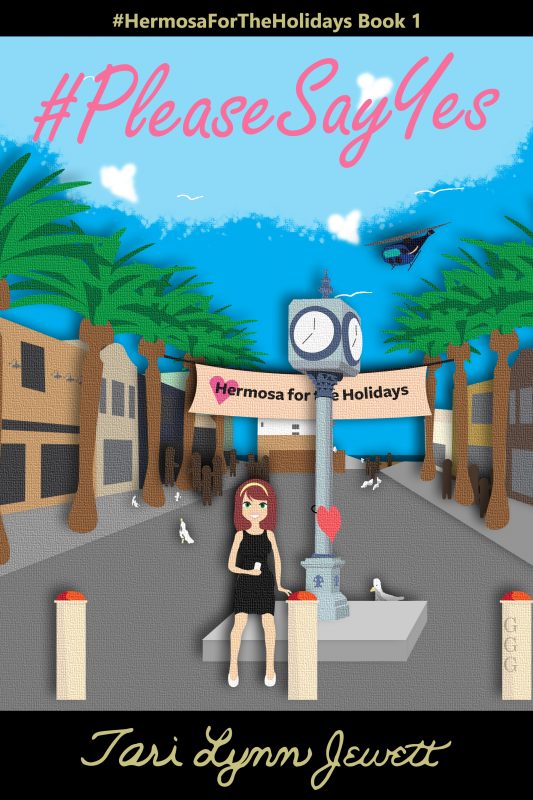What’s Your Reading Goal?
February 5, 2025 by Tracy Reed in category WritingHappy New Year. I am so excited about this year. I haven’t completed my goals yet, but I’m being careful not over estimate what I can realistically accomplish. There’s one goal I am going to expand on, leisure reading.
In 2023 I returned to serious pleasure reading. In the past, I was so consumed with writing and trying new marketing things, I hadn’t spent much time reading for fun. In an effort to read more, I paid myself $5 for each book I read. I think I ended the year with $180…36 books. I was very proud of myself. The list also included my books because I was proofing books for publication. A read book is a read book.
Last year, I attacked my task a little different. In addition to solo reading, I hooked my parents onto audio books. When we’re in the car together, we listen to audio books. My goal for last year was 60 books. I was feeling ambitious when I set the goal. To be honest, I wasn’t too sure I was going to make it, but I did. In fact, I ended the year with 85 books.
I have met readers who read several hundred books a year. Hearing that also encouraged me to amp up my reading goal. I belong to a Facebook reading group where we share what we’re reading and our reading goals. There was a woman in my group who had read over 500 books last year. The number one question in the group was “How?”. She answered, “I don’t watch much television”.
How did I achieve my goal? I read several books at a time…audio, print and ebook. Technically, I listen to two audio books at a time…one in the car and one while I work out.
This year my reading goals is 100 books, which I believe I’ll accomplish. In addition to that lofty goal, I’ve taken on another daunting task…reading the Bible in a year. I went to a Christian university and reading the Bible was a requirement. I am almost ashamed to say I skirted around that assignment, but this is the year I rectify it.
Determination to reach my reading goal introduced me to several new authors. It has also helped jumpstart my creativity. I’m working a couple of series with a strong make voice. Unlike my series The Alex Chronicles, centered around females. This series will center around men and their pursuit of love. In order to write them, I need to get into their mind and speech…language. Men talk different from women and their word usage can be a little brash. My leisure reading is also my craft homework.
What’s your reading goal for this year?
2025 Bethlehem Writers Roundtable Short Story Award
February 4, 2025 by Bethlehem Writers Group in category Contests, From a Cabin in the Woods by Members of Bethlehem Writers Group tagged as #TheBWG, Bethlehem Writers Group, Bethlehem Writers Roundtable Short Story Award, Short Story Award
With the new year comes another contest for BWG LLC’s latest anthology, Illusive Worlds, forthcoming in 2026.
BWG is seeking never-published stories of 2,500 words or fewer on the theme of Speculative Fiction (broadly interpreted tales of science fiction and fantasy).
The winners receive cash and publication, with the first-place winner being considered for our upcoming anthology, Illusive Worlds: Sweet, Funny, and Strange Tales of Science Fiction and Fantasy.
The Contest opened January 1, 2025, and the deadline is March 31, 2025. Science fiction and fantasy author Adrian Tchaikovsky will judge the 2025 contest. Click the link below for more information and the entry form.
https://bwgwritersroundtable.com/short-story-award-2
If you have a great story concept for Illusive Worlds, fire up that word processor and get started.
First Place:
$250 and consideration for publication in our upcoming anthology: Illusive Worlds: Sweet, Funny, and Strange Tales of Science Fiction and Fantasy or Bethlehem Writers Roundtable
Second Place:
$100 and publication in Bethlehem Writers Roundtable
Third Place:
$50 and publication in Bethlehem Writers Roundtable
The 2025 contest judge is science-fiction and fantasy author Adrian Tchaikovsky.
For more information on the 2025 Short Story Award and for information on how to enter, click here. You can also read an interview with Mr. Tchaikovsky here.
Books from Bethlehem Writers Group, LLC

The Bethlehem Writers Group, LLC (BWG), founded in 2006, is a community of mutually supportive, fiction and nonfiction authors based in Bethlehem, Pennsylvania. The members are as different from each other as their stories, spanning a range of genres including: children’s, fantasy, humor, inspiration, literary, memoir, mystery, paranormal, romance, science fiction, women’s fiction, and young adult.
See the schedule of meetings and events here.
Neetu Malik: Featured Author
February 1, 2025 by Neetu Malik in category Featured Author of the Month tagged as Featured Author of the Month, Neetu Malik, Poet's Day, poetry

Neetu Malik’s poetry is an expression of life’s rhythms and the beat of the human spirit. She draws upon diverse multicultural experiences and observations across three continents in which she has lived. She has contributed to The Australia Times Poetry Magazine, October Hill Magazine, Prachya Review, among others. Her poems have appeared in The Poetic Bond Anthology V and VI published by Willowdown Books, UK, NY Literary Magazine’s Tears Anthology and Poetic Imagination Anthology (Canada).
Her poem, “Soaring Flames”, was awarded First-Place by the NY Literary Magazine (2017). She has also been nominated for the Pushcart Prize, 2019 for her poem “Sacred Figs” published by Kallisto Gaia Press in their Ocotillo Review in May, 2018.
Neetu lives in Pennsylvania, USA.
You can find Neetu’s poetry in these volumes.
Hover on the cover for buy links. Click on the cover for more information.
Picture Perfect
January 30, 2025 by Dianna Sinovic in category Quill and Moss by Dianna Sinovic, Writing tagged as beach, fiction, short fiction
Shaun held the framed photo of his grandfather and traced the image with his finger.
“He was such a great man.”

Granddad had died four years ago, but the rawness of grief still gnawed at Shaun. He’d lost the man who had raised him when his own parents couldn’t—or wouldn’t.
And here he was, reviewing plans for his wedding, his fiancée at his side. Erin would never meet the person he owed his life to.
“I see where you got your good looks,” Erin said. “Too bad I never knew him. My own grandfather died when I was just a baby, so I never knew him either.” She paused, and looked down at her notebook. “Maybe we can honor your grandpa in some way at the reception?”
She launched into an update on the guest list, the bridal party, and other wedding details he honestly didn’t have an opinion on. They were getting married, and that was enough. If only Granddad were here . . .
Once again he touched the photograph, taken when his grandfather was Shaun’s age, his eyes sparkling in laughter, his ever-present Tilley hat pushed to the back of his head. In the background, the surf at Brigantine crashed onto the sand, a gull winging overhead. Shaun had framed the photograph after he reached adulthood and went out on his own. He wanted to be reminded of how far he’d come, thanks to the man.
Erin continued her updates, and he closed his eyes briefly. When he opened them, he was standing on a beach, with the waves rolling in below a clear sky. Gulls cried above him, and a briny breeze flowed off the ocean. Erin was looking at him, her mouth agape.
“Where are we?” she squeaked.
“Not sure,” Shaun said. “The Jersey Shore, I think.”
The beach was deserted except for a man walking toward them—the guy definitely had them in his sights. As the man drew closer, Shaun knew who it was, but not how or why.
The face was younger but unmistakable. “Granddad?”
In the warm summer sunshine, the man wore jeans and a tee, his head topped with his usual brimmed hat. His smile enveloped Shaun, and he followed that with a bear hug.
“Shaun, my boy,” the man said. “Good to see you.” He turned to Erin, shock still etched across her face. “And this must be your fiancée.” He extended a hand. “A pleasure, miss. You’ve got yourself a real catch in Shaun.”
Erin slowly put out her own hand, and the man covered it with both of his.
“But how . . . ?” Shaun said, his voice trailing off until the roar of the surf absorbed it. “You’re young—my age. And you’re here. It’s impossible.”
“Not impossible, but complicated,” his grandfather said. To Erin, he said, “You can call me Paul. I’ve known Shaun for years.” He offered his arm to her and winked. “I think it’s time to take a walk on the beach. Beautiful day for a stroll, don’t you think?”
For the next few hours, that’s what they did, talking and laughing as the waves tugged at their feet. With every step, Shaun tried to make sense of what was happening. Erin, trading jokes with Paul, was at ease as if she’d known the man for years, not just an afternoon.
Finally, Paul came to a halt and turned to Shaun. “You’ve done well, grandson. I’m proud of you.” He reached into his pocket and pulled out a silver dollar. “Take this. When the time comes to say your vows, this will stand in for me, since I can’t be there.”
Shaun took the coin, felt the smoothness of the metal, its unyielding strength.
“Thank you,” he said, content to remain in this must-be-a-dream state as long as he was allowed.
The wind gusted, sending up spray from the surf. Paul grabbed hold of his hat and settled it on the back of his head.
Erin, still at Paul’s side, reached up and adjusted it. “There, that looks better,” she said, smiling. “And it keeps the sun out of your eyes.”
Shaun shaded his own eyes in the brightness, closed them briefly—and he was again in his living room, the framed photo of his grandfather back on the side table where he kept it.
His right hand still gripped the silver dollar, and he opened his palm. The coin was real enough; he hadn’t dreamt that.
Erin shook her head, her eyes dazed. “What just happened?”
“I’m not sure,” he said.
He glanced at his grandfather’s photograph. It was the same, and it wasn’t. The Tilley hat perched on the back of his grandfather’s head was now straightened, and his lips curved in a friendly smile.
Featured Author: Bethlehem Writers Group, LLC
January 29, 2025 by Bethlehem Writers Group in category Apples & Oranges by Marianne H. Donley, Contests, Featured Author of the Month tagged as #TheBWG, Bethlehem Writers Group, Bethlehem Writers Roundtable Short Story Award, new release, Seasons Readings, Short Story Award
About Bethlehem Writers Group, LLC
The Bethlehem Writers Group, LLC (BWG), is a community of mutually supportive fiction and nonfiction authors based in Bethlehem, Pennsylvania. The members are as different from each other as their stories. BWG also publishes quality fiction through their online literary journal, Bethlehem Writers Roundtable, and their award-winning A Sweet, Funny, and Strange Anthology series.
Each anthology has an overall theme—broadly interpreted—but includes a variety of genres. All but the first anthology include stories from the winner(s) of The Bethlehem Writers Short Story Award.
Their first anthology, A Christmas Sampler: Sweet, Funny, and Strange Holiday Tales (2009), won two Next Generation Indie Book Awards: Best Anthology and Best Short Fiction.
Season’s Reading: More Sweet, Funny, and Strange Holiday Tales is the latest in A Sweet, Funny, and Strange Anthology.

About Season’s Readings
In this new addition to the “Sweet, Funny, and Strange”(R) series of anthologies, the multi-award-winning Bethlehem Writers Group, LLC, returns to its roots. As denizens in and around Bethlehem, Pennsylvania (also known as “Christmas City, USA”), we were happy to make our first anthology a collection of holiday tales. But one volume just wasn’t enough. Now, in our eighth anthology, we’re returning to the theme to bring you twenty-one new stories that span the holidays from Thanksgiving through New Year’s Eve.
Emwryn Murphy’s sweet tale tells about a chosen family’s “Friendsgiving,” crashed by a blood relative who might, or might
not, be happy with what he sees in “As Simple as That.” Jerome W. McFadden once again reveals his humorous side in his story about
a would-be Santa who gets into trouble in “Flue Shot.” A. E. Decker shares an intricate Christmas fantasy about “The Goblin King’s
Music Box.” And Paula Gail Benson gives a new twist to a traditional symbol for the New Year in “Star of the Party.” Beyond these holidays, Diane Sismour writes about Krampusnacht, Debra H. Goldstein about Pearl Harbor Day, and Peter J Barbour about Hanukkah. Other favorite BWG authors, including Jeff Baird, Ralph Hieb, D.T. Krippene, Christopher D. Ochs, Dianna Sinovic, Kidd Wadsworth, and Carol L. Wright, also share their holiday musings.
In addition, this volume includes the 2023 and 2024 award-winning stories from the Bethlehem Writers Roundtable Short Story Awards. Sally Milliken, the 2023 first-place winner, presents “The First Thanksgiving.” From 2024, we have our top three winners with first-place winner Rhonda Zangwill’s “Oh! Christmas Tree,” second-place winner Bettie Nebergall’s “Just Ask Santa,” and third-place winner Mary Adler’s “Narragansett Nellie and the Transferware Platter.”
We hope you enjoy these holiday gifts and that all our readers experience the very happiest of holiday seasons.
Next up for BWG

BWG is working on their ninth anthology, Illusive Worlds: Sweet, Funny, and Strange Tales of Science Fiction and Fastasy
In connection with this anthology, they are hosting The Bethlehem Writers 2025 Short Story Award.
The 2025 Short Story Award opens on January 1, 2025. The theme will be Speculative Fiction (tales of science fiction and fantasy,broadly interpreted).
BWG is seeking never-published short stories of 2,500 words or fewer.
First Place:
$250 and consideration for publication in our upcoming anthology: Illusive Worlds: Sweet, Funny, and Strange Tales of Science Fiction and Fantasy or Bethlehem Writers Roundtable
Second Place:
$100 and publication in Bethlehem Writers Roundtable
Third Place:
$50 and publication in Bethlehem Writers Roundtable
The 2025 contest judge is science-fiction and fantasy author Adrian Tchaikovsky.
For more information on the 2025 Short Story Award and for information on how to enter, click here. You can also read an interview with Mr. Tchaikovsky here.
Books from Bethlehem Writers Group, LLC
Affiliate Links
A Slice of Orange is an affiliate with some of the booksellers listed on this website, including Barnes & Nobel, Books A Million, iBooks, Kobo, and Smashwords. This means A Slice of Orange may earn a small advertising fee from sales made through the links used on this website. There are reminders of these affiliate links on the pages for individual books.
Search A Slice of Orange
Find a Column
Archives
Featured Books
MERRY BELLES: A Bluestocking Collection with Friends
Seven charming holiday stories from award-winning and best-selling authors.
More info →
THE LAST GOODNIGHT
With another body turning up, one woman is hot on the trail of a killer . . .
More info →TWO BITES TOO MANY
Far from a domestic goddess, Sarah Blair would rather catch bad guys than slave over a hot stove. But when a dangerous murder boils over in Wheaton, Alabama, catching the killer means leaving her comfort zone …
More info →THE CONSPIRACY
When family ambition turns deadly Chase Garrett must keep Harper safe and both of them alive.
More info →#PLEASE SAY YES (#HermosafortheHolidays Book 1)
So, you think social media has taken over YOUR life?
More info →Newsletter
Contributing Authors
Search A Slice of Orange
Find a Column
Archives
Authors in the Bookstore
- A. E. Decker
- A. J. Scudiere
- A.J. Sidransky
- A.M. Roark
- Abby Collette
- Alanna Lucus
- Albert Marrin
- Alice Duncan
- Alina K. Field
- Alison Green Myers
- Andi Lawrencovna
- Andrew C Raiford
- Angela Pryce
- Aviva Vaughn
- Barbara Ankrum
- Bethlehem Writers Group, LLC
- Carol L. Wright
- Celeste Barclay
- Christina Alexandra
- Christopher D. Ochs
- Claire Davon
- Claire Naden
- Courtnee Turner Hoyle
- Courtney Annicchiarico
- D. Lieber
- Daniel V. Meier Jr.
- Debra Dixon
- Debra H. Goldstein
- Debra Holland
- Dee Ann Palmer
- Denise M. Colby
- Diane Benefiel
- Diane Sismour
- Dianna Sinovic
- DT Krippene
- E.B. Dawson
- Emilie Dallaire
- Emily Brightwell
- Emily PW Murphy
- Fae Rowen
- Faith L. Justice
- Frances Amati
- Geralyn Corcillo
- Glynnis Campbell
- Greg Jolley
- H. O. Charles
- Jaclyn Roché
- Jacqueline Diamond
- Janet Lynn and Will Zeilinger
- Jaya Mehta
- Jeannine Atkins
- Jeff Baird
- Jenna Barwin
- Jenne Kern
- Jennifer D. Bokal
- Jennifer Lyon
- Jerome W. McFadden
- Jill Piscitello
- Jina Bacarr
- Jo A. Hiestand
- Jodi Bogert
- Jolina Petersheim
- Jonathan Maberry
- Joy Allyson
- Judy Duarte
- Justin Murphy
- Justine Davis
- Kat Martin
- Kidd Wadsworth
- Kitty Bucholtz
- Kristy Tate
- Larry Deibert
- Larry Hamilton
- Laura Drake
- Laurie Stevens
- Leslie Knowles
- Li-Ying Lundquist
- Linda Carroll-Bradd
- Linda Lappin
- Linda McLaughlin
- Linda O. Johnston
- Lisa Preston
- Lolo Paige
- Loran Holt
- Lynette M. Burrows
- Lyssa Kay Adams
- Madeline Ash
- Margarita Engle
- Marguerite Quantaine
- Marianne H. Donley
- Mary Castillo
- Maureen Klovers
- Megan Haskell
- Melanie Waterbury
- Melisa Rivero
- Melissa Chambers
- Melodie Winawer
- Meriam Wilhelm
- Mikel J. Wilson
- Mindy Neff
- Monica McCabe
- Nancy Brashear
- Neetu Malik
- Nikki Prince
- Once Upon Anthologies
- Paula Gail Benson
- Penny Reid
- Peter J Barbour
- Priscilla Oliveras
- R. H. Kohno
- Rachel Hailey
- Ralph Hieb
- Ramcy Diek
- Ransom Stephens
- Rebecca Forster
- Renae Wrich
- Roxy Matthews
- Ryder Hunte Clancy
- Sally Paradysz
- Sheila Colón-Bagley
- Simone de Muñoz
- Sophie Barnes
- Susan Kaye Quinn
- Susan Lynn Meyer
- Susan Squires
- T. D. Fox
- Tara C. Allred
- Tara Lain
- Tari Lynn Jewett
- Terri Osburn
- Tracy Reed
- Vera Jane Cook
- Vicki Crum
- Writing Something Romantic
Affiliate Links
A Slice of Orange is an affiliate with some of the booksellers listed on this website, including Barnes & Nobel, Books A Million, iBooks, Kobo, and Smashwords. This means A Slice of Orange may earn a small advertising fee from sales made through the links used on this website. There are reminders of these affiliate links on the pages for individual books.































